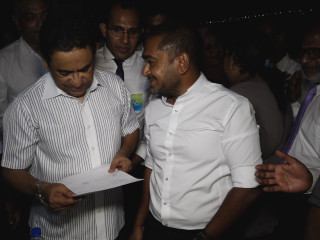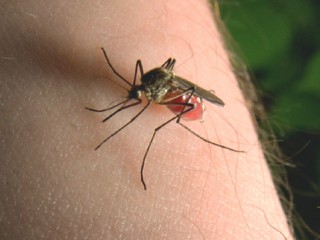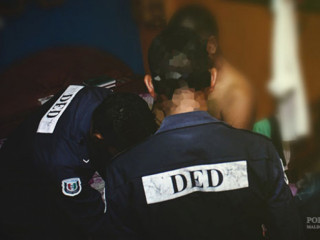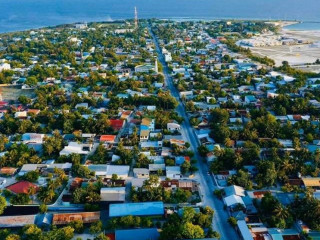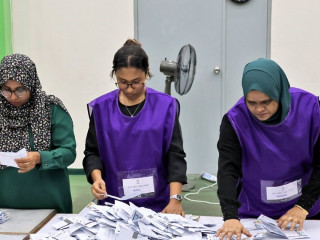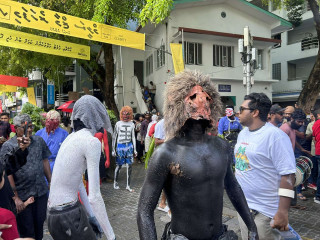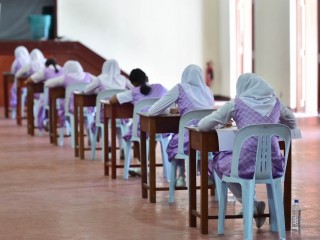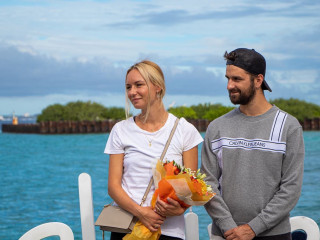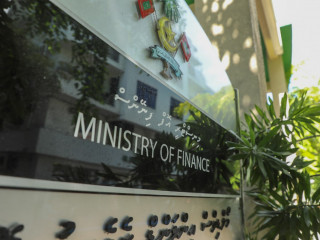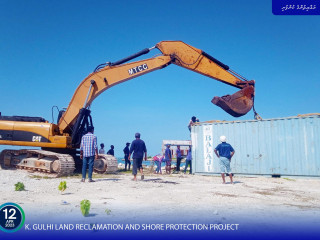The Maldives is currently preparing to elect its next president, as the incumbent president's term ends in November.
While this will be the third democratic election in the country's history, the country seems to have been divided into two factions.
Here is everything you need to know regarding Maldives’ election:
When is the election?
Sunday, 23rd September 2018.
Who is contesting?
There are two individuals running in the 2018 presidential elections; incumbent President Abdulla Yameen eyeing a second term with Dr. Mohamed Shaheem Ali Saeed as his running mate pitted against joint-opposition's common candidate MP Ibrahim Mohamed Solih with running mate MP Faisal Naseem.
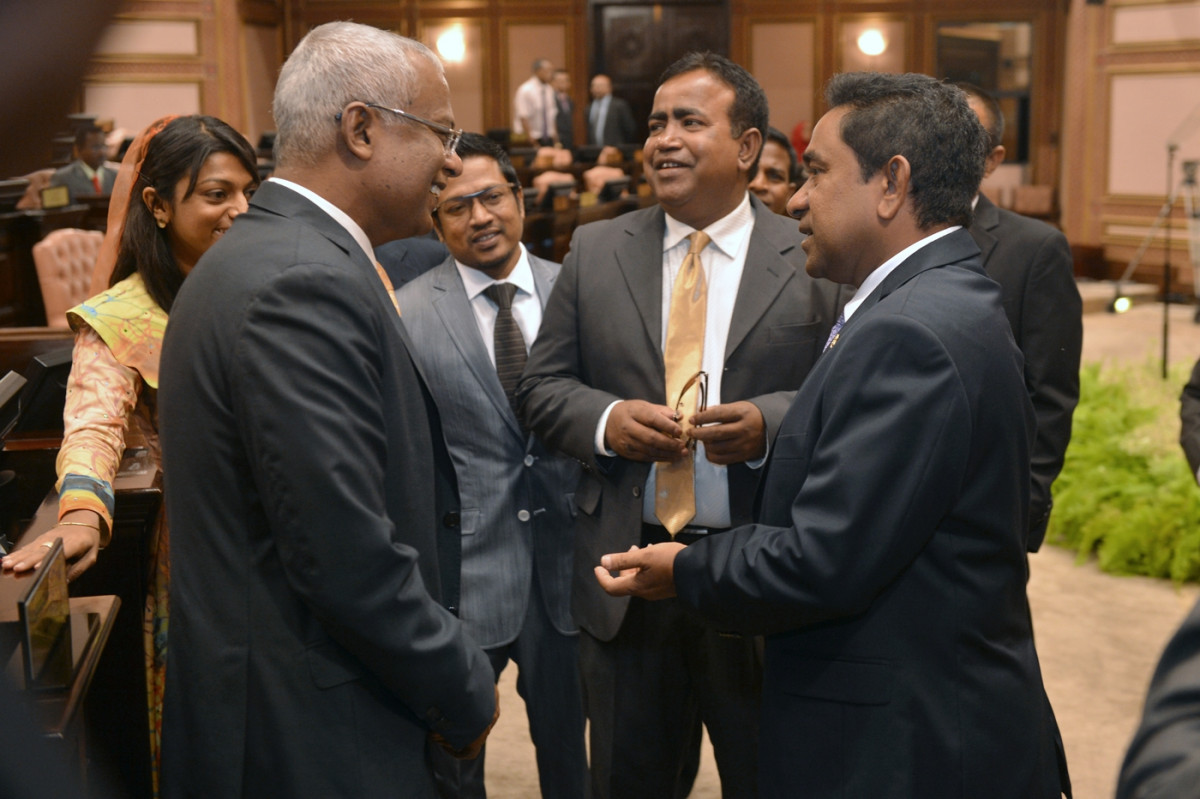
When can the results be expected?
While the provisional results are expected to come in on voting day itself, Elections Commission has said that final results will be announced a week later, on September 30th.
How does the vote work?
262,135 eligible voters can vote in this year’s election. While elections are normally held under a two-round system, this year’s election will only see one round as there are only two contesting. The one that gets majority will take victory, and oath of office is to be taken on November 17.
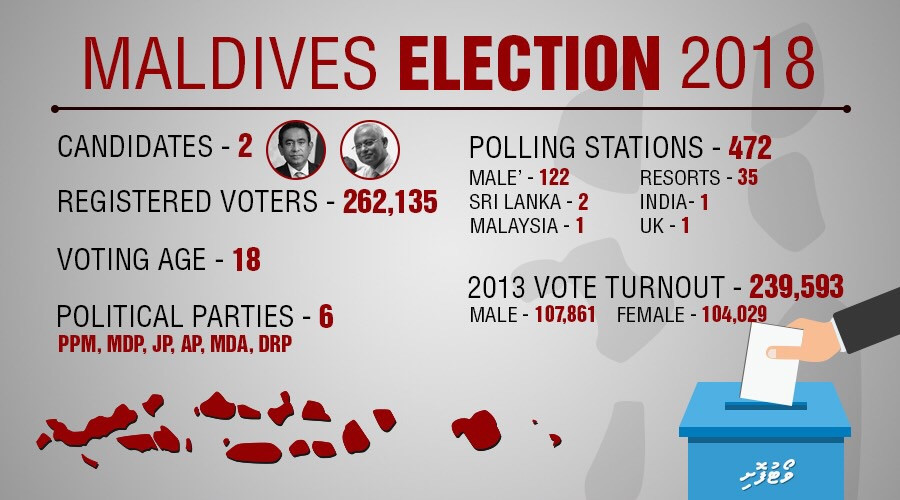
Current status of the country
Incumbent President Abdulla Yameen is vying for a re-election, despite the numerous allegations against him including corruption and misusing state resources. While he is the ruling party’s candidate for the election, main opposition parties- Maldivian Democratic Party (MDP), Jumhooree Party (JP), Adhaalath Party (AP), and former President Maumoon Abdul Gayoom’s breakaway faction of PPM- have formed a coalition and decided to unite behind a single candidate in their efforts to lawfully topple the ‘autocratic’ regime.
Back in February, Supreme Court issued a ruling to release nine high-profile political prisoners and reinstate 12 opposition lawmakers. Describing it as an attempted judicial coup, President Yameen decided to declare a 15-day state of emergency, which was later extended by 30 days. After declaring a state of emergency, Yameen continued to arrest high-profile figures, including his half-brother former President Maumoon.
Maumoon is not the only incarcerated political leader, MDP’s leader former President Mohamed Nasheed was sentenced to 13 years in 2015, AP’s leader Sheikh Imran Abdulla was sentenced to 12 years in 2016 while JP’s Qasim Ibrahim was jailed for 38 months in 2017.
Earlier this month, Yameen said that opposition candidate Solih should thank him for ensuring that Nasheed and Qasim are unable to run, despite continuous claims that he does not meddle with the country’s judicial process.
What can we expect?
Both the ruling party and opposition claim that they will emerge victorious in the elections. However, looking at last year’s Local Council Elections, the opposition MDP took over 300 out of the 655 seats, including 12 of the 13 seats in capital Malé City while the ruling party won only 191 seats. Independent candidates won more than 100 seats.
According to the Elections Commission, the turnout during the local council election was 66 percent of 255,987 eligible voters, which is more compared to 2014’s 64.5 percent but less than the first council elections in 2011 where the turnout was 70 percent.
What's feared?
Unrest, delayed and an unfair election.
Days after the Elections Commission of Maldives accepted the Joint Opposition’s Ibrahim Mohamed Solih’s candidacy, defence minister used his unofficial Facebook page to announce reports of ‘plots to destabilize Maldives’. Since then, Maldives police have revealed similar reports, including of plans to create ‘dangerous acts depending on election results to raise questions about the independence and fairness of the election’. The police’s statement came less than two weeks to the election.
Furthermore, police have arrested 19 opposition supporters over allegations to create unrest, with 18 arrested following an altercation between MDP and PPM supporters. The arrests came hours after PPM’s parliamentary group leader warned that they will be arrested. While they have since been remanded, they are accused of terrorism.
The opposition fears that reports of plots to create unrest in the country could lead to an election delay.
In addition, there are concerns that the vote will not be free or fair, with the opposition as well as the international community alleging that the environment in Maldives is not conducive for a free and fair one. Last week, MDP’s chair warned that voting could be disrupted to declare a state of emergency.
There have also been reports of attempts to buy the national identity cards of individuals prior to election day.
Will the vote be free and fair?
The opposition continues to express concern over what it describes as gross attempts to manipulate the outcome of the election, including obstructing opposition campaign activities as well as vote rigging.
Although the Commission denies it, there have been reports to alter the vote counting process making it less transparent.
The opposition also says that it has learnt of plans to ‘use wrong lists at polling stations and to anger voters and incite violence’ so as to declare a state of emergency. It said that the parliament is to convene after, to extend the incumbent president’s term.
International human rights organization, Human Rights Watch said that the Maldives government’s ‘intimidation of the political opposition and media threatens prospects for free and fair elections in September 2018’. It added that ‘immediate steps are needed to restore political freedoms and democratic rule to ensure free and fair elections in September’.
The elections will be observed by national and international observers; however, the Elections Commission has refused to disclose the international observers. Local reports indicate that the European Union and the United Nations will not be sending observers, after having concluded that the environment was not conducive for support.
What if the vote is deemed unfair?
While the Maldives left the Commonwealth in 2016, the UN and EU have continued to express concern over the deteriorating conditions here. EU, in July, passed a framework to impose targeted sanctions on human rights abusers in the country, and according to UK’s ambassador to Maldives James Dauris it depends on how free and fair September’s elections are. He also highlighted the EU’s ‘seriousness’ over the matter, saying it does not pass such frameworks lightly.
How might the election impact Maldives' foreign policy?
While experts have criticized the current administration’s foreign policy, compromising its relations with neighbours in an attempt to strengthen ties with China, former President Nasheed said that President Yameen’s foreign policies are dictated by ‘paymasters’.
While Maldives’ relations with India has weakened due to China’s growing influence in the archipelago nation, Joint Opposition’s Solih pledges not to do anything to jeopardize relations with China while giving priority to neighboring nations.



